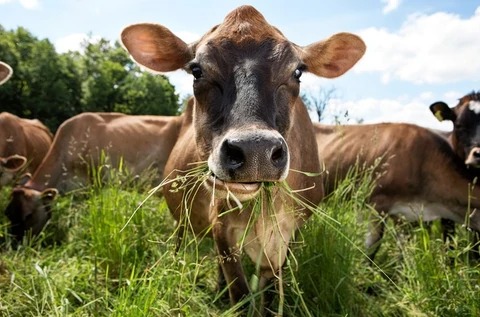Why Eat Organic?
Organic is not simply about eating healthier - it’s about changing the way we think of farming, food, and how we treat our planet. Climate change is one of the gravest threats humanity has ever faced and, along with rising inequality and economic stagnation, is a problem in need of urgent solutions. Organic agriculture can help – by benefitting people, the planet, and prosperity, it positively impacts a number of issues, from public health to jobs and growth in rural communities. That’s why at Buffalo Market Groceries we’re deeply committed to working with organic producers wherever possible, and seeking out the best local farmers.
Fewer Pesticides

Food that’s labeled organic is grown without the use of synthetic pesticides, artificial fertilizers, and other chemicals such as insecticides. While many of these are officially certified as “safe” and widely used in commercial farming, numerous studies have linked them with all manner of health issues, from allergies to cancer and falling fertility rates. And it's not just about what's in the food we eat - rural communities suffer some of the greatest negative health impacts of modern chemical agricultural practices, with farmworkers and their families particularly exposed. Organic agriculture gives them a safer environment in which to work and live.
Fresher Food

Organic food is not treated with preservatives, so it’s automatically fresher. As such, it’s often produced and sold more locally than other products, with fewer air miles between farm and consumer. This cuts greenhouse gas emissions and reduces farming's carbon footprint. And fresher food holds more of its nutrients, vitamins, and minerals, meaning it's healthier as well as better tasting.
Nutritionally Better

With certain foods, going organic makes them better for your body. Studies have shown that certain nutrients, such as omega-3 fatty acids, are 50 percent higher in organic meat and dairy. Organically raised animals are also not given antibiotics, growth hormones, or fed animal byproducts - and a healthier animal means higher quality, and tastier, meat. The benefits for fruit and vegetables are also numerous, with mounting evidence showing that food grown organically is rich in nutrients such as Vitamin C, iron, magnesium, and phosphorus. Less exposure to harmful nitrates and pesticide residues is also beneficial.
Better For The Environment & Local Economies

Organic farming uses less water, less energy, and reduces soil erosion while building healthier soils and providing positive impacts on the environment, such as greater carbon sequestration. Farming without chemicals and pesticides also benefits local wildlife and those who live close to farms, while less intensive methods of keeping livestock ensure a healthier, and more fertile, biosphere as a whole.
The economic benefits of organic are also clear, particularly in rural areas, where communities are more likely to rely on intensive agriculture for work and where poverty rates are highest. Such communities are also disproportionately affected by programs calling for limiting carbon emissions and sustainable business approaches. Organic agriculture offers these places a healthy, viable economic alternative, and provide greater economic return for products to farmers (and improved regional economies overall), than conventional chemical-intensive farming.
Working with local producers, and dealing with organic produce wherever possible, is something we at Buffalo Market are committed to. We care about sourcing, which is why we work with so many great Bay Area producers to bring you the freshest, best quality products. Add some of our fabulous organic products to your cart today.

